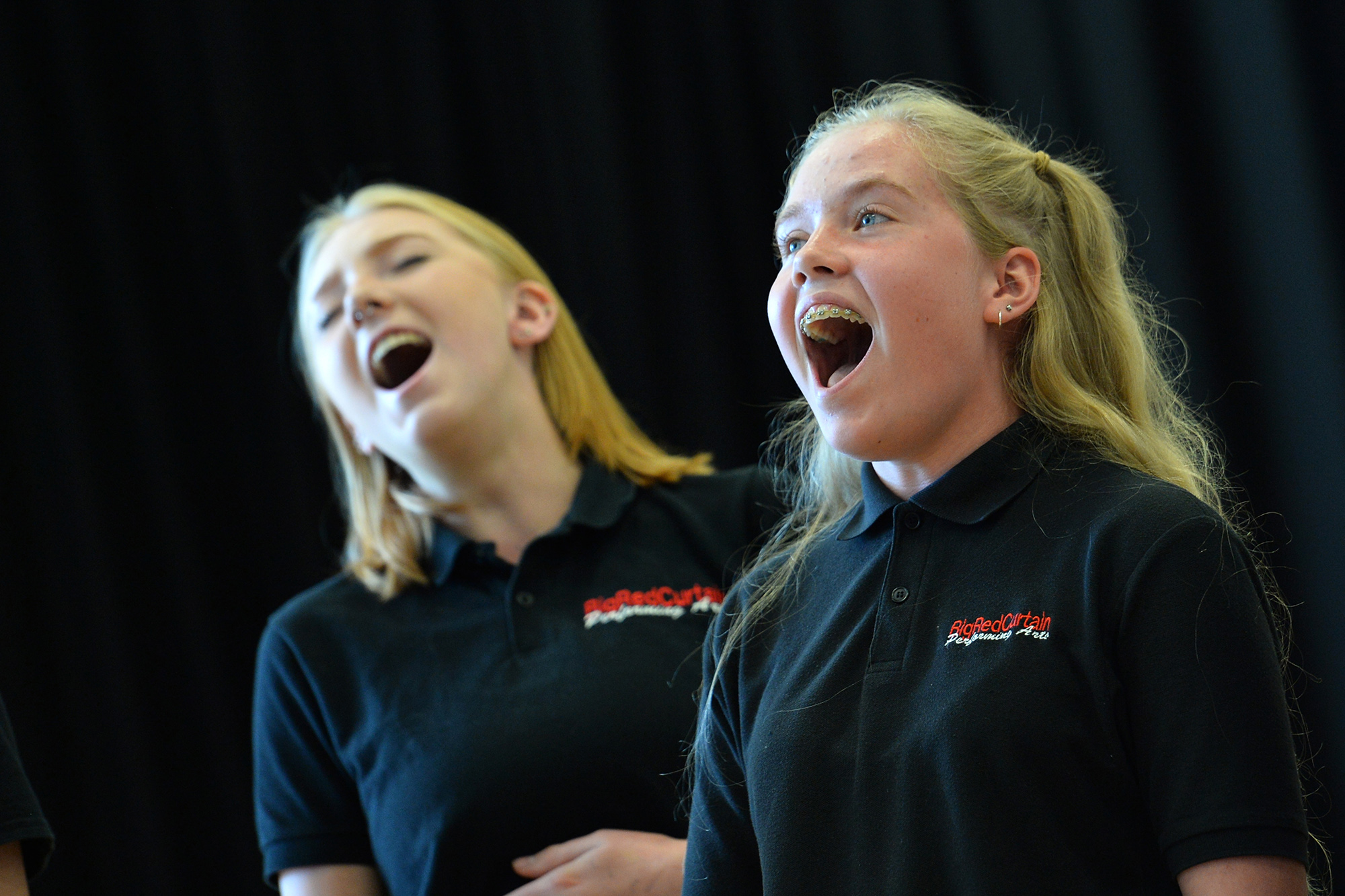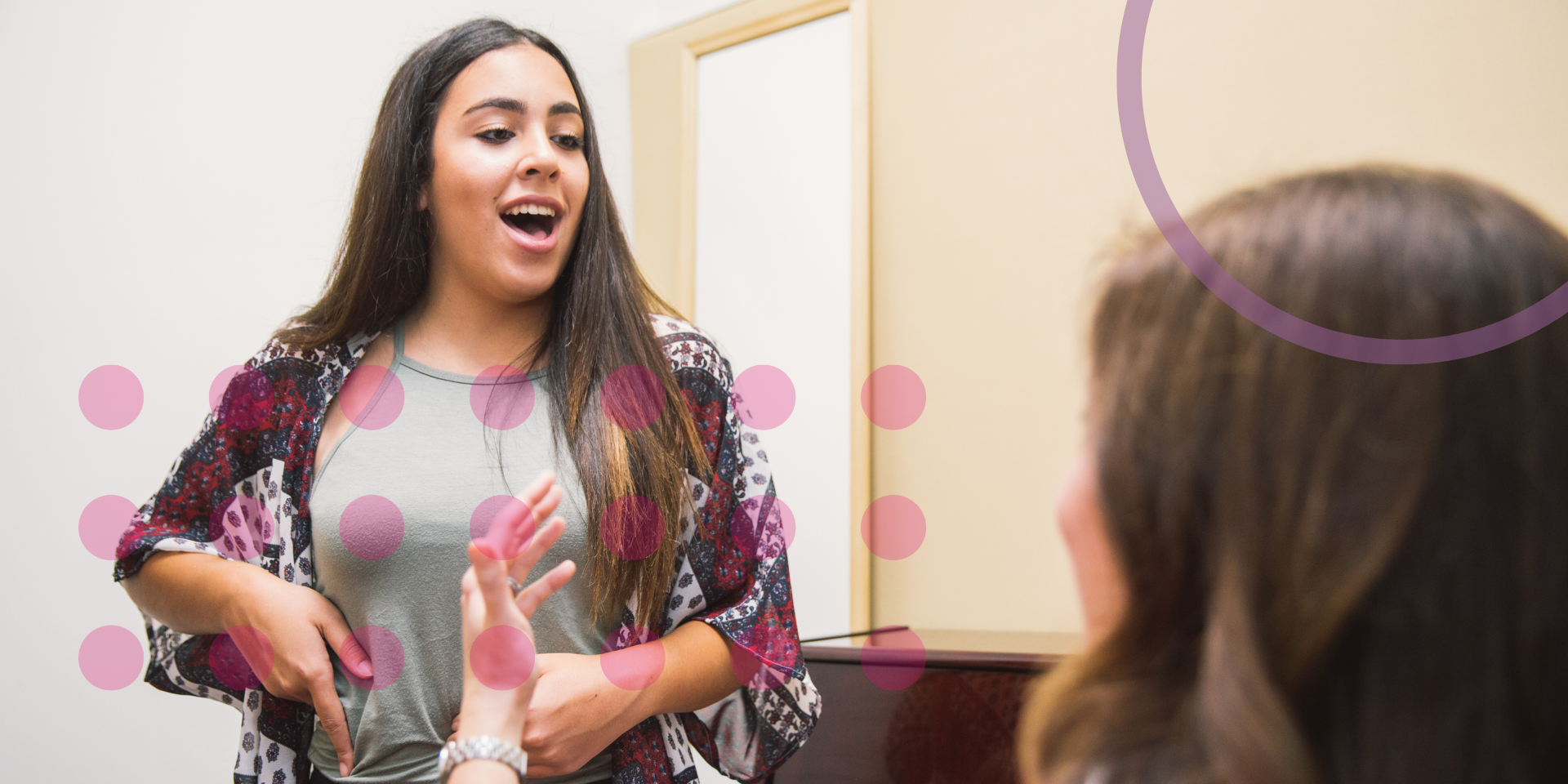
Exploring Musical Theatre tasks: Connection to the Lyrics
BY: Nicola King
17 April 2024
Connection to the Lyrics is a task from Grade 4 Solo and Pair exams, in our 2023 Musical Theatre specifications. The requirements of the task could, at first, seem deceptively simple: perform the lyrics of a song as a monologue/duologue, but this is one of the most innovative and challenging tasks in our Musical Theatre syllabus. In this blog we will explore Connection to the Lyrics in greater detail.
The aim of this task is for candidates to demonstrate their understanding of one of their performed songs by performing the lyrics from the original song as if it were a monologue/duologue. At Advanced levels there are specific requirements for the performance of the lyrics. Candidates are asked to use their imagination and explore the meaning behind the words, playing with different contexts or emotions and considering how their character would react or behave in different situations. Through this process, and through removing the constraints of melody and rhythm, the candidate may gain deeper insights into character and the story/narrative contained within the lyrics.
At the Intermediate level (Grades 4 and 5) the context of the performance is the candidate’s own choice. They could, for example, perform the lyrics as if they were making a phone call to someone else, or candidates in a Pair exam could play with the intensity, pace, or emphasis of the song, speaking the dramatic climax of the song in a whisper for example. Candidates should be encouraged to think of their own ideas rather than enforcing an interpretation — this will give them greater ownership of the performance. There is no right or wrong, and the examiner will be interested to see the candidate’s flexibility and willingness to find a new interpretation, no longer bound by the rhythm of the music.
At Grade 6 they are asked to perform the lyrics as a monologue set in a different environment, that is a different setting to that of their prepared performance of the song. In rehearsals, encourage candidates to play with this and try out different environments, ‘What if the character was in a doctor’s waiting room?’, or ‘What if the character was in a supermarket?’, before they decide upon an environment that feels interesting or revealing to them. An example of this at Grade 6 Pair could be:
- ‘Barcelona’ from Company (Stephen Sondheim), a duet between Robert and April originally set in a bedroom as she gets ready to go to work. Speaking the lyrics, the candidates could imagine that they are in a busy, noisy coffee shop to explore some of the repetition as they try to listen to one another.
At Grade 7 candidates are asked to perform the lyrics as a monologue set in a different environment and now also conveying a different emotion. Here candidates should think about the emotion that was explored in the song when performed in an earlier task and select an environment that will allow them to explore a different emotion. Through doing this the candidate could discover nuances in the lyrics which help them to explore the character or underlying themes in more depth. An example of this for Grade 7 Solo could be:
- ‘Don’t Lose UR Head’ from Six the Musical, sung by Anne Boleyn introducing her character to the audience with confidence, but with no specific environment in the original. Instead, the candidate could imagine a whispered conversation in a classroom. Anne is trying not to be observed by the teacher and feeling scared of Henry’s attentions and the potential repercussions. This would allow the candidate to explore the contemporary lyrics in a natural and familiar situation.
At Grade 8 the candidate(s) must now perform the song as a monologue in a new context that explores a different interpretation of the lyrics. Here we are asking for something quite radically different to the version of the song presented earlier, and candidates may want to change the characterisation, plot/themes or the physicality and movement, as well as the original choreography, movement, and staging. Again, there is no one interpretation, and candidates should be encouraged to explore a range of ideas. In rehearsals you could ask candidates to work with other songs and present drastically different interpretations of them, so that they become familiar with the process of reimagining a song in this way. An example for Grade 8 Solo could be:
- ‘If I were a Bell’ from Guys and Dolls (Frank Loesser). In the original context Sarah is bowled over by feelings of love and happiness. A different, more sinister, interpretation could see Sarah feeling trapped and desperately trying to signal for help.
A brief outline of the changed scenario should be provided for the examiner, and digital candidates should include this with their documentation when uploading videos. The lyrics of the song can be edited to fit within the time constraints of the task and, where this occurs, a copy of the lyrics with the edits should be provided for the examiner.
Through engaging with this exercise, particularly in the explorative rehearsal process, new meaning and creative ideas will be uncovered, and we think candidates will enjoy the freedom of this task.
For more guidance on approaching our Musical Theatre exams, take a look at our resources page.

-1.jpg)

Comments & Replies